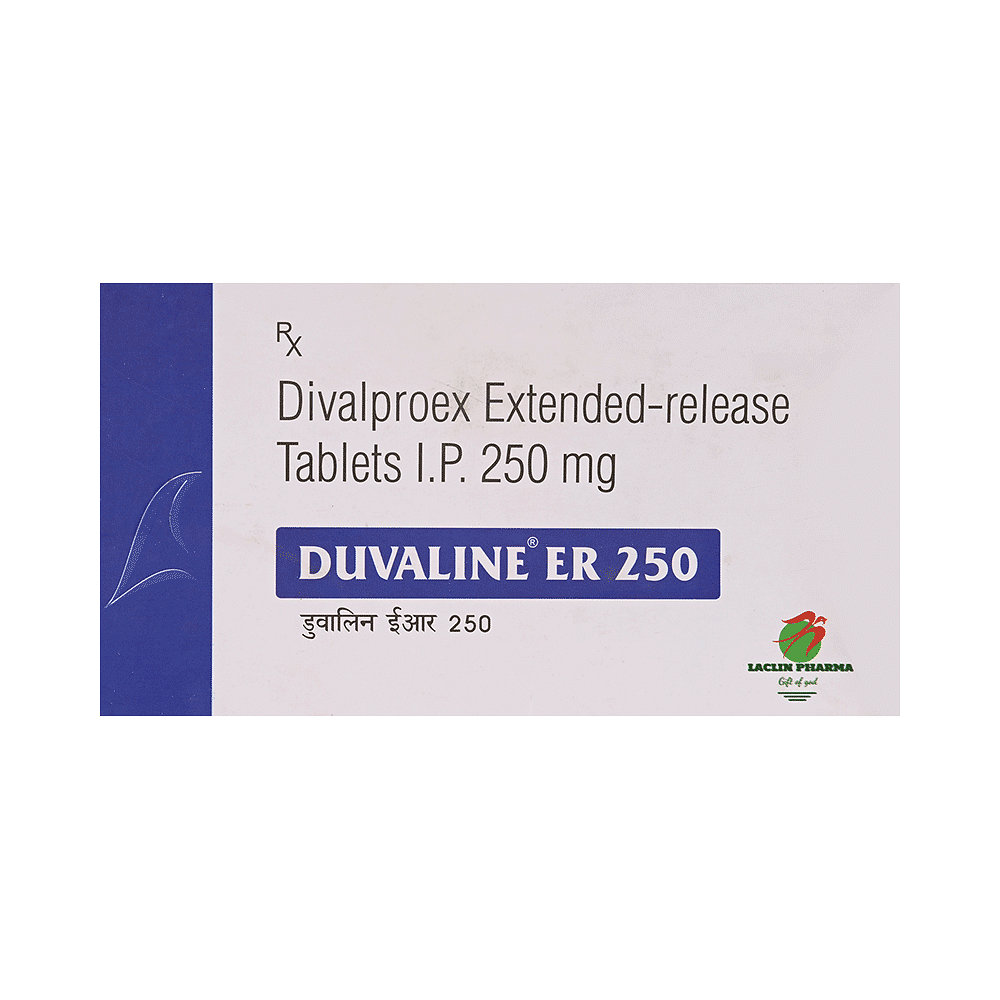
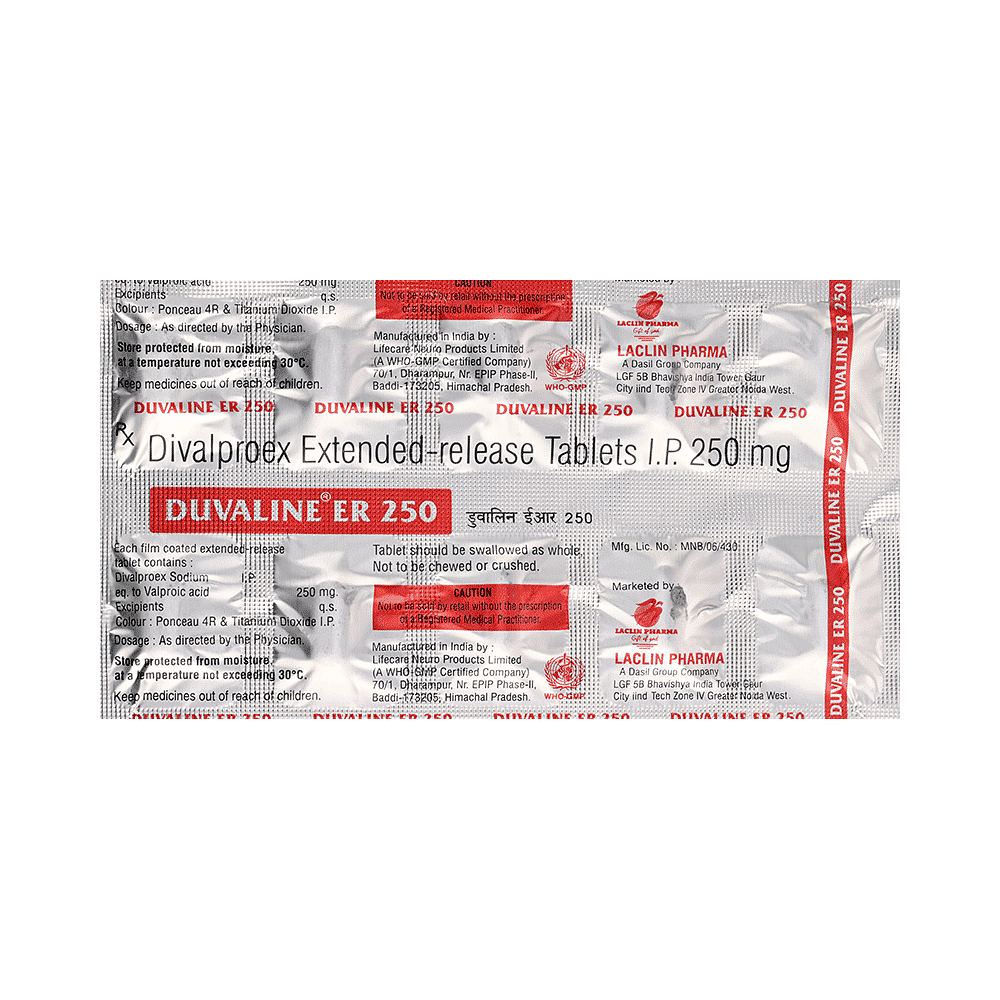
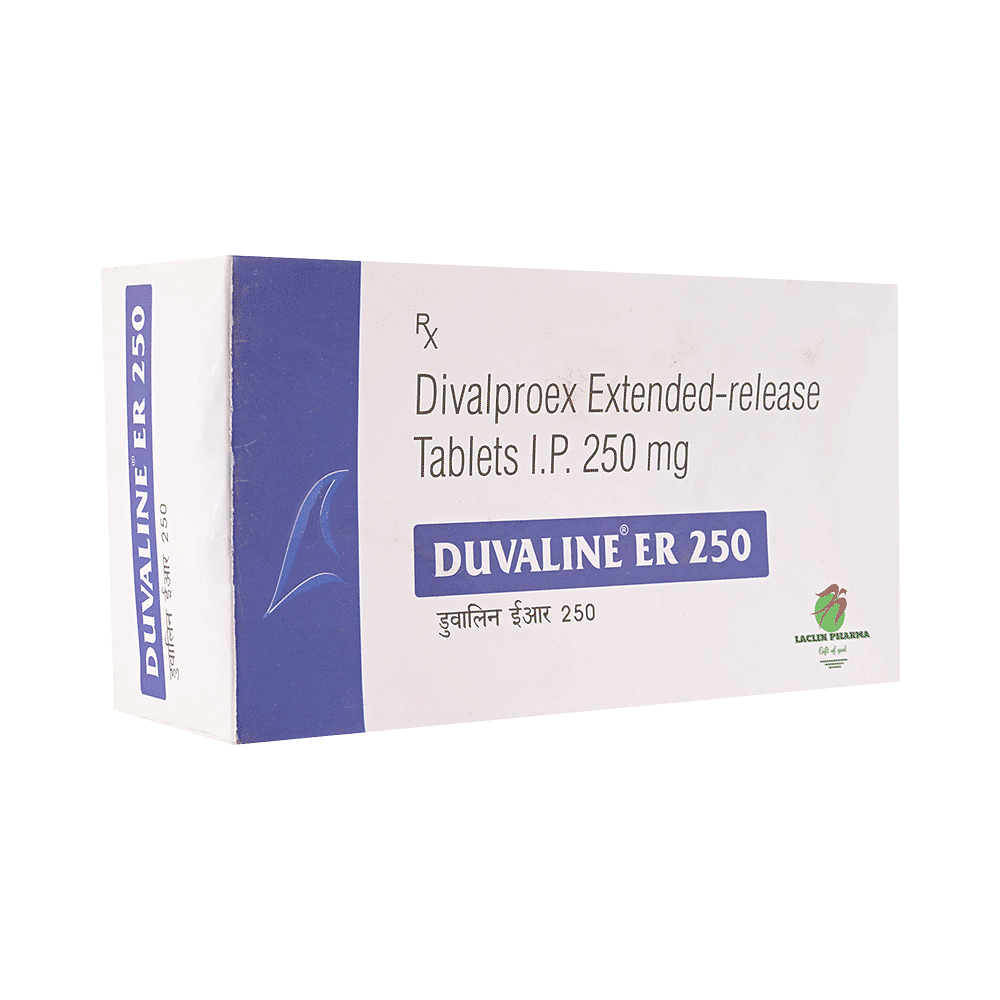
Duvaline ER 250 Tablet
Manufacturer
Laclin Pharma Pvt Ltd
Salt Composition
Divalproex (250mg)
Key Information
Short Description
Duvaline ER 250 Tablet is a medicine used to treat epilepsy, prevent and control seizures (fits), and prevent migraines. It may also be used to treat bipolar disorder.
Dosage Form
Tablet ER
Introduction
Duvaline ER 250 Tablet may be used alone or in combination with other medicines. The dose and how often you need to take it will be decided by your doctor so that you get the right amount to control your symptoms. You can take this medicine with or without food but take it at the same time each day to get the most benefit. It usually takes a couple of weeks to work. It is important to take this medicine regularly and for as long as you are advised even if you feel well. Missing doses may trigger seizures and if you stop your condition may get worse. It should never be stopped suddenly.
Directions for Use
Take this medicine in the dose and duration as advised by your doctor. Swallow it as a whole. Do not chew, crush or break it. Duvaline ER 250 Tablet may be taken with or without food but it is better to take it at a fixed time.
Safety Information
Side Effects
Headache Blurred vision Nausea Vomiting Dizziness Tiredness Unsteadiness Bruising Decreased body temperature
Alcohol Warning
Duvaline ER 250 Tablet may cause excessive drowsiness with alcohol.
Breastfeeding Warning
Duvaline ER 250 Tablet is safe to use during breastfeeding. Human studies suggest that the drug does not pass into the breastmilk in a significant amount and is not harmful to the baby.
Pregnancy Warning
Duvaline ER 250 Tablet is unsafe to use during pregnancy as there is definite evidence of risk to the developing baby. However, the doctor may rarely prescribe it in some life-threatening situations if the benefits are more than the potential risks. Please consult your doctor.
Interacting Medicines
Alprazolam Chlordiazepoxide Clobazam Clonazepam
How it works
Duvaline ER 250 Tablet is an antiepileptic medication. It controls seizures or fits by decreasing the abnormal and excessive activity of the nerve cells in the brain.
Quick Tips
Take your medication regularly as directed by your doctor as missing doses can trigger seizures. It can be taken with or without food but better to take with food to avoid stomach upset. Do not change the brand of your medicine and make sure that you have sufficient amount of medicine present with you. Practice yoga every day. Get enough sleep at nighttime. Limit the use of screen time such as mobile/laptop. Take your medication on time. Monitor your weight during treatment with this medicine as it can cause weight gain.
Related Medicines

Dicorate ER 250 Tablet

Divaa-OD 250 Tablet
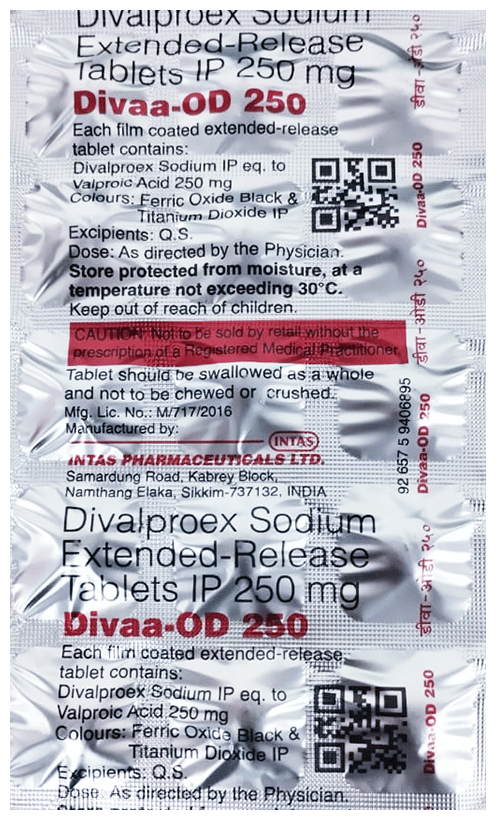
Divaa-OD 250 Tablet

Dvlox-OD 250 Tablet ER

Glarikot ER 250 Tablet

Diever 250 Tablet ER

Divalgress ER 250 Tablet

Psyvox-ER 250 Tablet
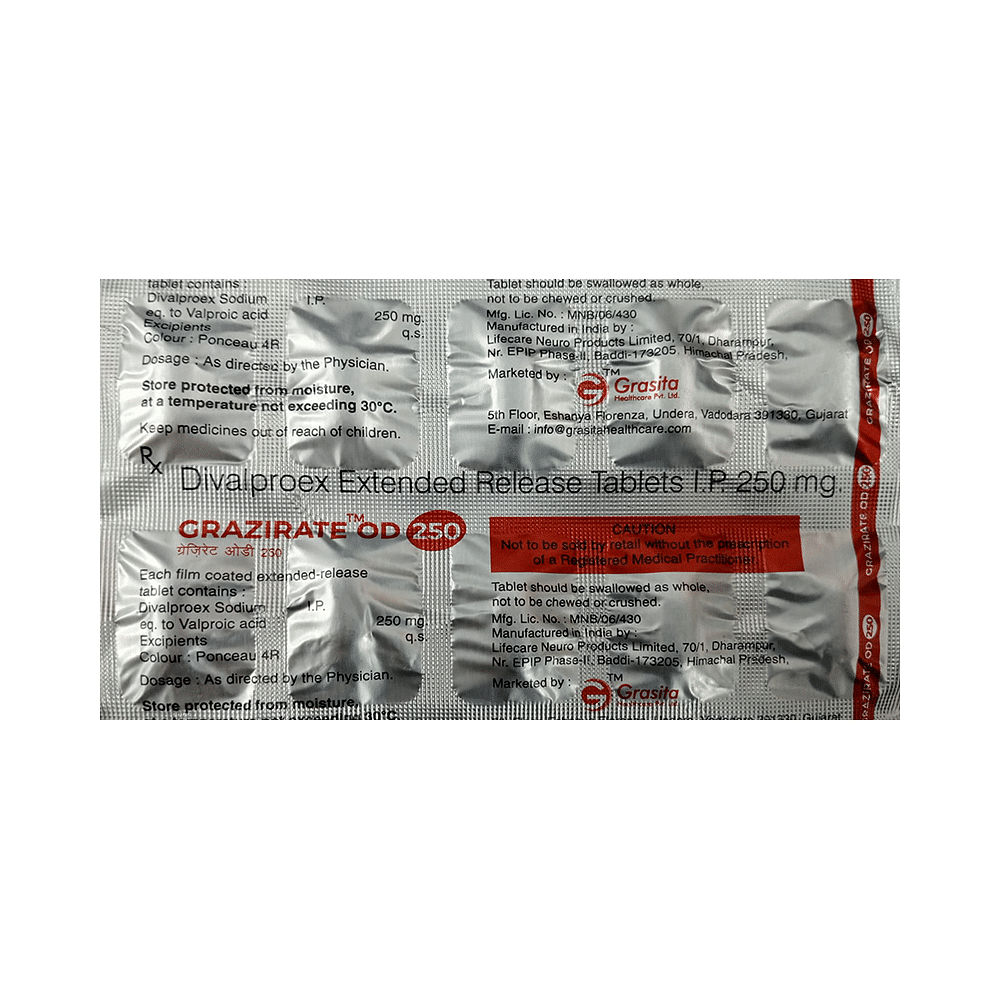
Grazirate OD 250 Tablet ER

Divacid-ER 250 Tablet
Frequently asked questions
What happens if I stop taking Duvaline ER 250 Tablet?
You should not abruptly discontinue taking Duvaline ER 250 Tablet without consulting your doctor. Gradually reducing the dose under medical supervision is recommended to minimize potential risks such as recurrence of symptoms, irritability, anxiety, dizziness, or tremors.
Is Duvaline ER 250 Tablet a mood stabilizer?
Yes, Duvaline ER 250 Tablet can be used for mood stabilization in some patients. It is prescribed to individuals experiencing rapid shifts in their emotional state. The medication works by calming the hyperactivity of the brain during mood changes.
Can Duvaline ER 250 Tablet cause weight gain?
Yes, Duvaline ER 250 Tablet may contribute to weight gain. This increase in weight could be attributed to heightened hunger. It is important to monitor your diet and engage in regular exercise to prevent any unintended weight fluctuations. If you have concerns about weight gain, discuss them with your healthcare provider.
Does Duvaline ER 250 Tablet make me sleepy?
Yes, Duvaline ER 250 Tablet may induce drowsiness. Avoid driving or engaging in activities requiring mental focus until you are fully aware of its potential impact on your alertness.
Does Duvaline ER 250 Tablet cause hair loss?
Yes, Duvaline ER 250 Tablet can potentially trigger hair loss. However, this effect is usually temporary and dose-dependent. If you experience significant or prolonged hair loss, consult your doctor for guidance.
Can Duvaline ER 250 Tablet damage my liver?
Yes, Duvaline ER 250 Tablet may pose a risk to the liver. This risk is generally higher in the first six months of treatment initiation. Symptoms of liver damage can include nausea, vomiting, loss of appetite, stomach pain, dark urine, facial swelling, yellowing of the skin or whites of the eyes. Therefore, regular liver function tests are crucial during the initial six months and periodically thereafter.
Can I drink alcohol while taking Duvaline ER 250 Tablet?
It is advisable to abstain from consuming alcohol while on Duvaline ER 250 Tablet. Alcohol consumption may intensify drowsiness, lightheadedness, or dizziness.
What laboratory tests are recommended before taking Duvaline ER 250 Tablet?
Before starting Duvaline ER 250 Tablet, your doctor might order blood tests to assess your overall health. These may include a complete blood count (CBC), platelet count, bleeding time, and coagulation tests. The tests are also advised before therapy to determine if there is a risk of spontaneous bruising or bleeding.
What should I do if I experience abdominal pain, nausea, and anorexia?
Acute severe abdominal pain accompanied by nausea and vomiting might be indicative of pancreatitis. Contact your doctor immediately in case you notice these symptoms, as early medical attention is crucial. Your doctor may order a serum amylase test to confirm the diagnosis.
How can I identify an overdose of Duvaline ER 250 Tablet?
Overdose of Duvaline ER 250 Tablet can lead to headaches, blurred vision due to pupil constriction. You may experience a lack of reflexes, confusion, and tiredness. Weakness or “floppy” muscles, seizures, loss of consciousness, behavioral changes, and breathing difficulties (such as rapid breathing, shortness of breath, or chest pain) are also potential signs.


